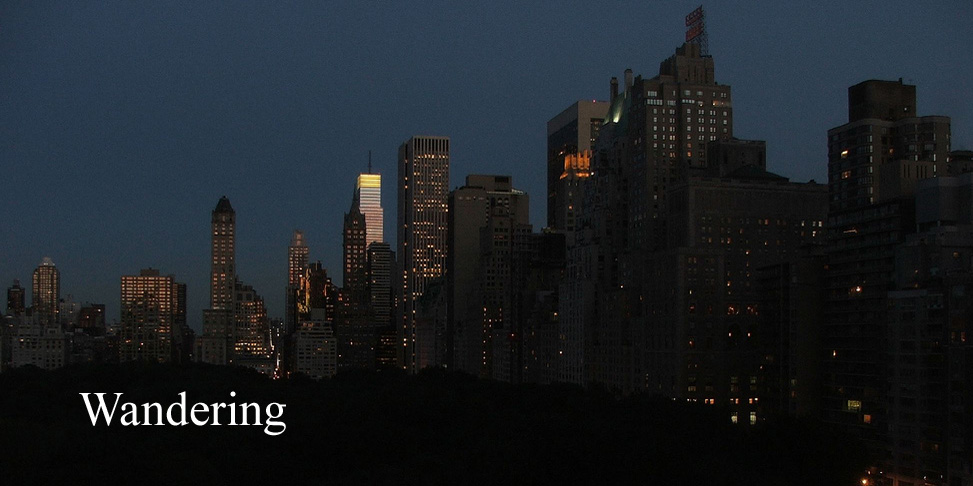On 18 April we heard a concert associated with the Aurora Festival, at the Music Workshop Conservatorium of Music. There were three works on the program.
First, Gavin Bryars, One Last Bar then Joe Can Sing (1986). I was reminded by the program notes that Gavin Bryers is best known for Jesus Blood Never Failed Me Yet (1971) which I remembered as a tape loop of a frail voice intoning the words of the title. I don't know if I ever heard the whole piece which the note said ran for an hour, or if my vague memory of it did it justice, but it made me a bit apprehensive.
One Last Bar is written for a large percussion group, 5 players in all, including marimba and vibraphone and what looked like temple bells or small Balinese gongs. Towards the end the bells and the vibraphone were played with a bow.
The piece has a program of sorts: the program describes the title as “an amalgam of in jokes between the composer and himself". More reason for apprehension.
But the overall effect of the work was excellent. A visual metaphor that came to mind was that it created pools of sound. I didn't quite reach the reverie promised by the program note but headed in that direction. This impression was so strong that I was surprised when I re heard the work on the radio a few nights later to hear the characteristic repetitions of the minimalist style were so prominent.
Next was Micrographia by Michael Smetanin, head of the Composition and Music Technology Unit at the conservatorium. I hadn't previously heard of him or his work. Micrographia is scored for piano three violins, cello, bass, flute, oboe, clarinet, bassoon (& contra bassoon) trumpet, trombone, two horns and percussion. The percussion included two marimbas played with the hands rather than mallets or sticks. This work, in contrast to the first, created a sound pattern which seemed to make threads of music against a background of patterns of sound made by various combinations of instrumental sound which were fascinating to hear. The title of the piece comes from a reference to the microscopic work of Robert Hooke, and the gradual expansion of a phrase which begins the work. I didn’t hear this happening at the concert but it was apparent on listening to the broadcast. Yet another example of the need to hear works more than once – if only there was enough time.
The last work was the Daniel Variations of Steve Reich composed in 2006. The work is a musical tribute to the journalist Daniel Pearl who was murdered in appalling circumstances by terrorist thugs in 2002. For a long time I have thought that some historical events are so dreadful that they defy reproduction in artistic work and make it almost impossible for the artist, writer of composer to avoid making the impression that the subject was chosen just to shock and enhance the status of the artist, in a way which wrongly makes use of the victims.
The Daniel Variations overcomes this problem completely. It is a remarkable and very moving work.
It is scored for 4 pianos, a string quartet, 2 clarinets, percussion including two vibraphones and a quartet of singers. The singers voices are amplified, and it seemed at the performance that this was done, at least in the first part of the work in a way which restricted the dynamic range of their singing. The work is also in the minimalist tradition, each movement incudes numerous repetitions of a single line, two taken from the Book of Daniel and two from the words of Mr. Pearl himself. These lines are also the titles of the movements.
1. I saw a dream. Images upon my bed & visions in my head frightened me
2. My name is Daniel Pearl
3. Let the dream fall back on the dreaded
4. I sure hope Gabriel likes my music, when the day is done.
Four grand pianos in a single performance space is worth seeing – and hearing; the sound produced by the unique combination of instruments was fascinating and powerful.
The vocal line in the last movement, I sure hope Gabriel likes my music, when the day is done, comes from a remark recalled by a friend of Daniel Pearl, who was a violinist, about his belief in a heaven.
The setting of these words makes them a powerful affirmation of Pearl’s life and memory and a magnificent defiance of the evil which overcame him.
Aurora Live Modern Music Ensemble Daryl Pratt, conductor. Conservatorium Music Workshop 18 April 2008
Broadcast - same program recorded at Penrith 20 April - ABC FM 22 April

No comments:
Post a Comment